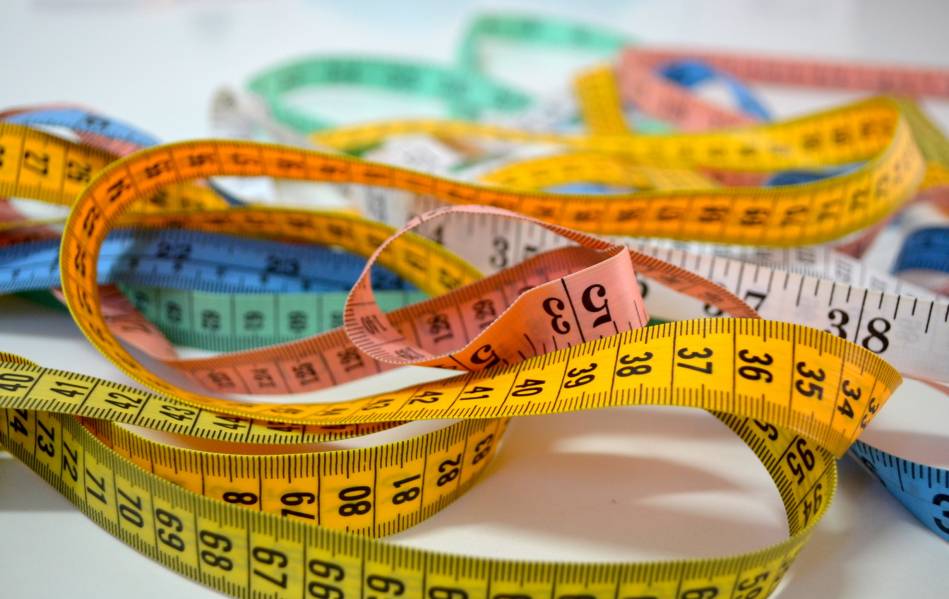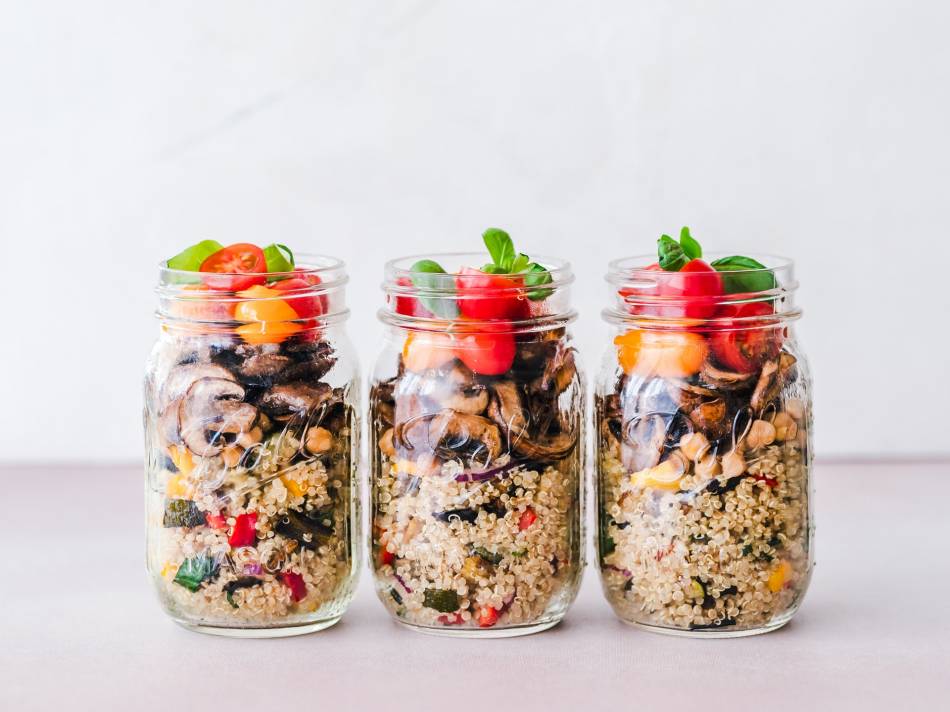
How to diet to lose weight in a healthy way

The most common mistake people make when they decide to start a new diet is to hit the accelerator a bit too hard, whether they want to get rid of the extra kilos within 1-2 weeks or 1 month. An accelerated lifestyle and the fact that we have access to everything almost immediately results in us believing that losing weight can happen in no time. This is the worst we can do.
| With sudden fasting and promising methods to lose weight, you will indeed achieve initial results, but just for a moment. Not only you will upset your metabolism but you will also develop issues like deficiencies in your digestive system that will keep you from long-term consistent improvement. |
As a result, your skin cannot keep up with the sudden weight loss and it will sag, hanging badly. It is best to start with a well-designed healthy diet plan.
Let’s lose weight – How does dieting work?
Knowledge of metabolism is the key to successful dieting. This value, also known as BMR (Basal Metabolic Rate), is the amount of energy the body needs at room temperature and at rest to provide basic life functions such as heart function, breathing and body temperature. Think of it as the calories you would burn if you sat on the couch all day. This is the basic number of calories your body needs to function.
|
If, over a prolonged period of time, your diet only consumes calories equivalent to your basic metabolic rate, your body goes into reserve mode. |
Every activity, movement, or even sitting requires extra calories. The primary task in establishing a proper diet is to assess your daily energy requirements. By contrast, when calorie intake is reduced through nutrition and consumption is increased through sport, the end result is weight loss, meaning the body uses it from its storage. 1 kg of fat is released at minus 7,000 calories.
A healthy weight loss rate means 0.5 to 1 kg of fat per week. Reducing your energy intake by 500 kcal per day can help you lose 0.5 kg of fat per week. It is important that this can be supported by sports, which can reach up to 400-700 kcal in 60 minutes.
Faster, lower-metabolism diets result in overturned metabolism, which can even result in gaining fat. But digestive and other metabolic diseases are also common as a result of fashion diets.

Fashion Diets: Do They Work or Not?
Let’s see some trendy diets, what they are and how to use them.
Ketogenic diet
The ketogenic diet is a very low carbohydrate diet with a moderate protein and high fat intake, that last being 70-80%. This is because when the carbohydrates, the main source of energy, is very low, the body starts to use the fat stored in your system. As a result, it produces ketone bodies that are used and detected in the urine. It can lead to greater weight loss in the short term, but can also result in unsafe conditions due to intestinal cancer or excessive ketone levels. However, for many health problems such as epilepsy and some types of cancer, it is considered to be very effective therapy.
Paleo diet
It is also called the ‘caveman diet’, which is based on meat and vegetables. Foods containing milk, gluten and starches, which are considered to cause many inflammations such as arthritis, diabetes and cancer, should be avoided in the paleo diet.
At the beginning of the diet, many people start losing weight quickly, as they leave out their snacks, pastries, garnishes and consume more vegetables instead. But the craving for sweets does not go away and the calorie content of the snacks and seeds that can be added to the paleo diet will shift the energy balance and cause you to stop losing weight, even weight gain may follow. Too much fat and protein intake is a burden on the body, and the maintenance of acid-base balance also requires more attention.
The biggest mistake in diets that forbit certain foods, such as the low-fat or low-carb diets, is that other foods can be consumed indefinitely and there is no suggestion to make up for the deficiencies. They do not give exact proportions and, in the long run, they are not feasible in a healthy lifestyle.
Lose 1 kg a week with a personalized diet
As in any diet, three foods are known as white poisons: sugar, salt and white flour. They will definitely be blacklisted.
Most recipes contain these, so you may need a little adjustment. Instead of white flour you can use oat flour, other wholemeal flour; for sweetening stevia or erythritol. To reduce salt intake, it is worthwhile immersing yourself in the world of green spices, which can be used to prepare very diverse, delicious foods and to maintain a long-term diet.
|
A proper calorie and balanced diet is the key to an effective and long-lasting diet that helps maintain results and does not produce a yo-yo effect. |
The key to this is efficient calorie counting and accurate nutrient ratios and amounts.
Nutrition ratios and, of course, the calorie intake needed, are significantly influenced by our body composition and the amount and nature of our work, but also by our sporting activities. When determining the ideal ratio of macronutrients to kilograms of body weight, calculate 1.5-2.5 g / kg protein with 0.6-0.8 g / kg fat. The hard question is always the amount of carbohydrates, you need to consider your intake and examine how much you consume. This is influenced by work and sport as well, it is typically worth 2-4 g / kg of carbohydrate daily.
|
Do not just focus on calories and macronutrients to make your own diet! It is important to consider the variety and the digestion time of the food, especially before training and in the evening. |
It is good to smuggle your eating habits and your favorite foods into the diet so you can continue in the long term without it being excruciating. Many times, sweets are the ones missed the most during the diet, but they can be replaced by a protein bar, a smoothie, or you can make very fine desserts from protein powder.

BioTechUSA dieting tips
Mediterranean diet
The Mediterranean diet reflects the traditional dietary principles of the inhabitants of the Mediterranean. In addition to its health-promoting effect, it has been found to be beneficial to the cardiovascular system and even to optimizing body weight, which is why many dieticians recommend it. The Mediterranean diet contains many antioxidant-rich vegetables, fruits, lean meats, whole grains and seeds, and olive oil. Avoids sugars, refined carbohydrates and oils, avoid also processed foods.
Vegan diet
Many people choose a pure plant-based, vegan diet for health or animal welfare reasons, in which they do not consume any animal product – dairy products, eggs, or even honey. Nowadays, more and more athletes, especially those who do endurance sports, are following a vegetarian or vegan diet. Nutritionists report improved mental freshness and energy, and combining the right ingredients can create a complete, performance-enhancing vegan diet.
Weight loss foods
There are a few foods that support fat loss, which can help your diet succeed. These include chicken breasts, sea fish, high-fiber, high-energy oat flakes or citrus fruits with high antioxidant content, and berries. Protein slices and smoothies help if we are in a hurry or if we are craving some sweets, because of their sweetness-inducing effect. Green tea, coffee and hot peppers are also excellent metabolic enhancers.
Short-term fashion trends that promise immediate greater weight loss carry serious health risks. If nothing else happens, you’ll lose a lot of pounds in a month and if your skin can’t keep up with the change, you’ll be less satisfied with yourself due to significant muscle loss. It is best to seek the help of a professional who will help you determine your exact needs and develop a personalized weight loss plan appropriate to your living conditions, thus avoiding many unnecessary attempts. Choosing the right diet and recipes is the key to enjoying your diet and being sustainable in the long run.